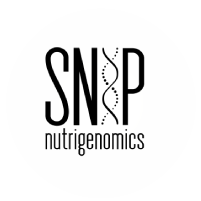Your gut health, cognitive function, and genetic makeup are more connected than you might think, and now, science is beginning to explain why. Recent research reveals that your gut microbiota plays a central role in brain function, mood regulation, and stress resilience, mainly through its influence on the HPA axis (hypothalamic-pituitary-adrenal axis).
At SNiP Nutrigenomics, we explore how your unique genetic blueprint impacts gut integrity, inflammation, and neurotransmitter activity. Understanding the relationship between gut health and genetic testing can reveal why some people are more prone to brain fog, digestive issues, or emotional overwhelm, and how personalized support can help.
A 2023 review by Rusch et al. highlights how a disrupted gut barrier can increase stress hormone output and impair memory, motivation, and mood. Fortunately, with the right tools, including nutrition tailored to your DNA, we can help optimize these gut-brain pathways for lasting wellness.
Genes That Influence Gut-Brain Health (and That SNiP Tests)
SNiP Nutrigenomics looks at 103 genes, including key variants that impact gut lining integrity, inflammatory tone, neurotransmitter clearance, and detoxification. These include:
FUT2: Secretor Status, B12 Absorption, Genetic Testing, and Gut Health
I get asked often about secretor status and the FUT2 gene, which isn’t our primary focus at SNiP (we’re more focused on B12 absorption efficiency). But because FUT2 plays a significant role in gut integrity and microbiome health, here’s a quick explanation.
One of the genes we do look at when assessing gut health and genetic testing is FUT2, which helps determine whether you’re a “secretor” or “non-secretor.” This status is based on your body’s ability to secrete certain sugars, specifically blood group antigens, into your saliva and intestinal lining. These sugars help feed beneficial gut bacteria and support a diverse, balanced microbiome.
This all comes down to a single-letter change in your DNA: the rs602662 variant. If you carry two copies of the G allele (GG), you’re a secretor. That means your body releases protective sugars into the gut, helping support microbial diversity and immune health and lowering vitamin B12 absorption and blood concentrations (there is competition at the cell lining).
You’re a non-secretor if you carry two A alleles (AA). This can make it harder for beneficial bacteria (good bugs) to colonize your gut. Still, it can also increase your ability to absorb B12 efficiently, as there are fewer colonized pathogens (and good bugs) to compete with B12 to get into the bloodstream.
Knowing your FUT2 status can help explain why some people thrive on probiotics or certain fibers, while others may need more targeted strategies to restore gut balance and support nutrient absorption.
I like this visual from Barton, S. J., Murray, R., Lillycrop, K. A., Inskip, H. M., Harvey, N. C., Cooper, C., Karnani, N., Zolezzi, I. S., Sprenger, N., Godfrey, K. M., & Binia, A. (2018). FUT2 gene variants and reported respiratory and gastrointestinal illnesses during infancy. The Journal of Infectious Diseases, 219(5), 836. https://doi.org/10.1093/infdis/jiy582

It is just one example of how genetics can influence digestive health and how personalized nutrition can help support it.
MTHFR and MTRR: How These Genes Affect Gut Health, Methylation, and Brain Function
These genes help regulate methylation, a process crucial for cellular repair, detoxification, and keeping the gut lining intact. Variants here can lead to reduced production of active folate and B12. These two nutrients are critical for energy, rebuilding a healthy gut barrier, and supporting brain function.
GSTP1 and SOD2: Genetic Antioxidant Defenses That Protect Gut Health and Brain Function
These are part of your body’s antioxidant defense team, helping neutralize oxidative stress and protect your gut lining and neurons. If these genes are not functioning efficiently, your body may struggle to manage toxins and free radicals, leading to increased inflammation and a more vulnerable gut-brain connection.
TNF-α and IL6: How Inflammatory Genes Impact Gut Permeability and Mood
These inflammation-regulating genes help determine your baseline level of immune activation. When overactive, they can contribute to gut permeability (“leaky gut”) and even affect how you feel mentally, mood swings, fatigue, or brain fog may all be tied to inflammation rooted in your genetics.
MAOA and COMT: Genetic Stress Response Pathways That Shape Gut-Brain Resilience
These two genes affect how quickly your body clears stress chemicals like dopamine, norepinephrine, and serotonin. If they are slower, you may feel more reactive or emotionally overwhelmed, and your brain may stay in stress mode longer after triggers, especially when combined with gut inflammation or dysbiosis.
What the Research Says: Gut Microbiota Shapes Stress Response
The Rusch et al. (2023) study highlights how the gut microbiota sends signals influencing the brain’s perception of stress via the HPA axis. When the gut barrier is compromised, immune responses escalate, leading to heightened cortisol output and disrupted neurotransmitter balance.
This is not just a stress issue; it’s a cognition issue. Poor gut health can lead to difficulty concentrating, mood imbalances, and reduced motivation.
But genes are not destiny. Nutrient cofactors, adaptogens, and antioxidant-rich foods can support your genetic blueprint; this is precisely where CODE Complex™ comes in.
🌿 How CODE Complex™ Supports Your Gut-Brain Axis
Our customized formulas include targeted blends based on your DNA results. Each compound in the CODE Complex™ is built from ingredients backed by science to support optimal gene expression.
Key ingredients for gut-brain support include:
- FUT2 Blend: SAMe, activated folate (Quatrefolic®), and methylcobalamin to support methylation and mucosal lining repair.
- GSTP1 & SOD2 Blends: Spirulina, quercetin, broccoli powder, resveratrol, S-Acetyl-Glutathione, niacin, green tea, and bilberry for antioxidant defense in the gut and brain.
- TNF-α / IL6 Blends: Turmeric and bamboo leaf to reduce inflammatory signaling.
- MAOA / COMT Modulation: Nutrients that help balance stress response and support neurotransmitter metabolism.
- Proprietary Prebiotic Base: Including Jerusalem artichoke (inulin), flaxseed, and polyphenol-rich fruits to feed beneficial bacteria.
CODE Complex™ does not guess. It responds to your genes precisely and supports the pathways that shape your microbiome, mood, and mind. Test, don’t guess, is our motto.
Ready to Discover Your Gut-Brain Genetic Blueprint?
You do not need to “wait and see” if brain fog or gut discomfort becomes your norm. With a simple DNA test and personalized support through SNiP Nutrigenomics, you can clarify what your body needs—and start optimizing your cognitive and gut health from the inside out.


